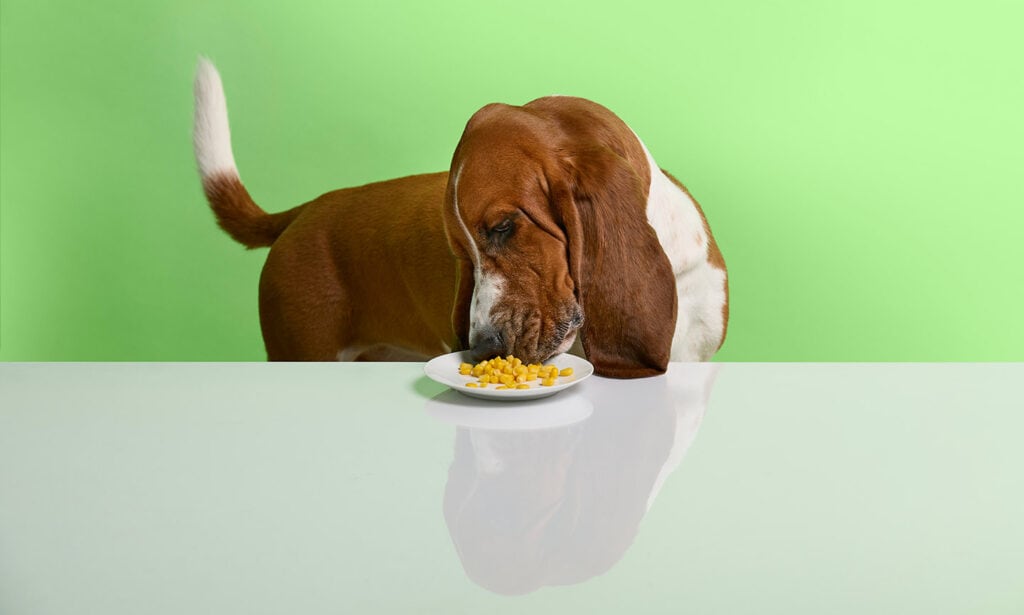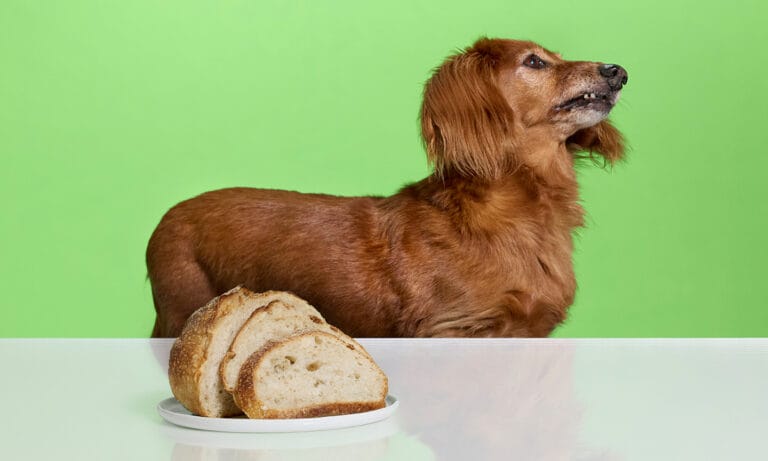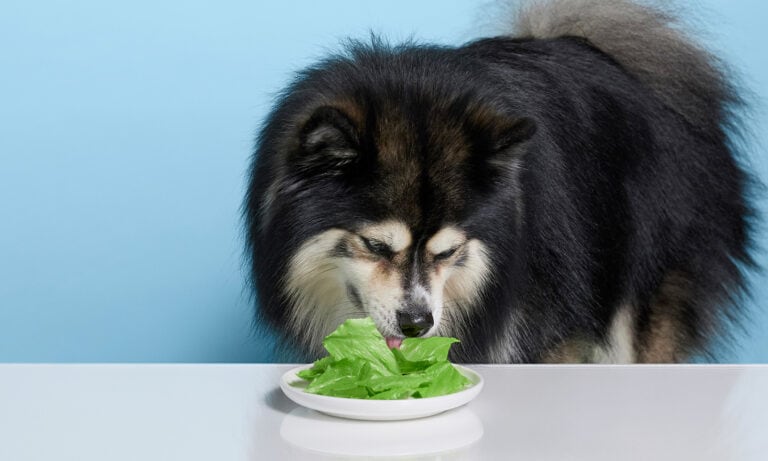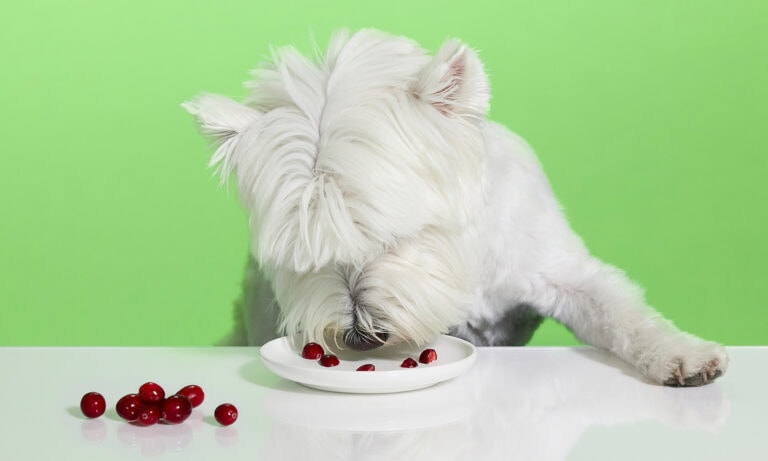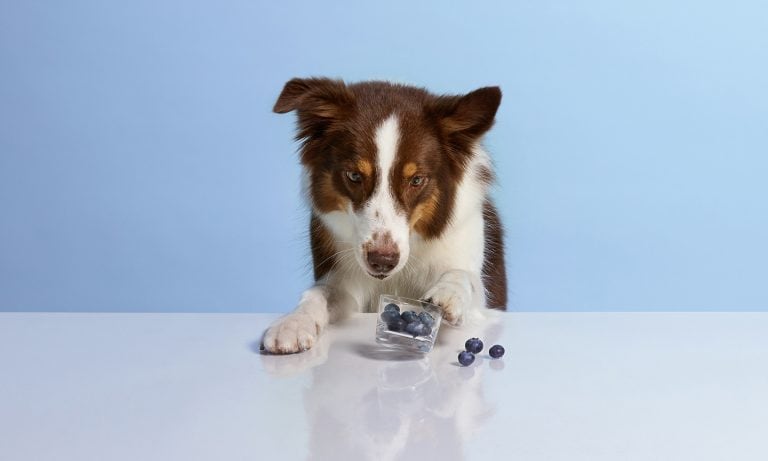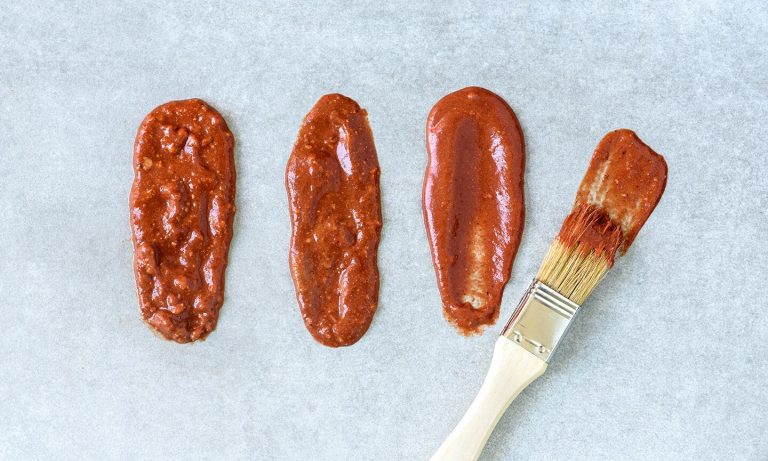Can dogs eat corn? Yes! Not only can they eat it, corn can be good for dogs, too. According to Dr. Brittany Caramico, associate veterinarian at Furry Friends Adoption, Clinic & Ranch, there’s a common misconception that corn causes significant allergies in dogs; however, it’s estimated that only about 4% of dogs have a corn allergy.
We spoke with Dr. Caramico for all the details on this nutritious and delicious food, as well as tips and advice on how to safely include it in your pup’s diet.
Benefits of Corn for Dogs
Is corn good for dogs? Yes! When fed in moderation, corn can be a nutritious addition to your dog’s balanced diet. Dr. Caramico says corn:
- Is a good source of protein and carbohydrates.
- Rich in insoluble fiber and healthy fats to promote gut health.
- One ear of corn is about 90 calories with 3 grams of protein, 1 gram of fat and 19 grams of carbohydrates.
- Contains linoleic acid, an essential omega-6 fatty acid.
- Contains carotenoids lutein and zeaxanthin to promote eye health.
- High in vitamin C, an antioxidant that protects cells from damage.
Risks of Feeding Corn to Your Dog
While dogs can eat corn as a treat or mixed in with their regular food, Dr. Caramico has a few things you should keep in mind before feeding your dog corn:
- Only feed your dog plain corn. That means no butter, salt or pepper!
- Never feed your dog corn on the cob. The hard cob is extremely difficult to chew, so it can cause life-threatening intestinal blockage if ingested and poses a choking hazard.
- Start small. When introducing a new food, always do so with a small portion to monitor for any gastrointestinal upset, such as vomiting or diarrhea. As a rule of thumb, 90% or more of a dog’s total daily caloric intake should be in the form of dog food. Corn, and human food in general, should never exceed 10% of a dog’s daily caloric intake.
- Avoid canned corn and creamed corn. Most canned vegetables contain high amounts of salt which is not good for dogs. Creamed corn has ingredients like milk, cream and butter that can cause gastrointestinal upset.
- Factor calories from corn into your dog's daily recommended totals. While a healthy treat, always consider calories.
How to Feed Corn to Your Dog
You should always consult with your vet before serving corn to determine the right portion size for your dog. Even a healthy treat like corn should be factored into your dog’s optimum daily balanced diet.
- If you’re using corn on the cob, wash it well, cook thoroughly in unsalted water, and then use a knife to scrape the kernels off the cob. (Don’t forget to discard the cob in the trash, preferably outdoors if your pup is a garbage digger.)
- Frozen, bagged corn purchased from the grocery store can be a fun, crunchy food topper for your pup, but make sure there are no added ingredients like salt, which is not good for dogs if consumed frequently.
- Sprinkle a few pieces of corn on top of your dog’s regular food—or hide it underneath their food to make them work for their treat! You can also give them a small handful as an occasional snack.
- Mix it into homemade treats or smoothie bowls.
Frequently Asked Questions
Q:Can dogs have sweet corn?
A:Technically yes, but sweet corn doesn’t have as many nutritional benefits as regular corn. Sweet corn has higher sugar content and is starchy. Plus it’s difficult for a dog to digest. If you feed your pup sweet corn, give them small amounts and only on occasion.
Q:Can dogs have corn on the cob?
A:No, never! Corn on the cob can cause life-threatening intestinal blockage if ingested and poses a choking hazard. If your dog does eat a cob, call your veterinarian immediately or take your dog to the emergency clinic as soon a possible, especially if you notice any vomiting, loss of appetite, diarrhea, difficulty pooping, stomach pain or lethargy.
Q:Can dogs eat corn bread?
A:A small bite isn’t likely to harm your pup, but Dr. Williams suggests avoiding feeding your dog corn bread since it’s usually made with butter, milk and/or cream, which can cause gastrointestinal upset.
Q:Can dogs eat corn chips/tortillas?
A:Chips in general are not good for dogs because they’re prepared in oil and often have seasonings that dogs shouldn’t eat, like salt, onion powder and garlic powder. Corn tortillas can be high in sodium and should be avoided, too.
Q:Can dogs eat hard, unpopped corn kernels?
A:No. Dogs teeth aren’t the shape needed to properly chew and break down those hard corn kernels, so dogs tend to swallow them whole. Kernels are difficult to digest and can lead to gastrointestinal upset.
Top Dog Food & Treats with Corn
If you’re looking to give your dog more of the nutritional benefits of corn, you’re in luck! There’s a lot of dog food and treats with corn as a main ingredient. Here are some of our favorites:
Before incorporating any new foods into your dog’s diet, always consult with your veterinarian to make sure it’s a safe addition to your pet’s diet given their health, diet needs and current medications. Your vet will tell you if your dog can eat corn and the appropriate serving size. If you suspect your pet is sick, please call your vet immediately. For health-related questions, always consult your regular veterinarian when possible as they can make the best recommendations for your pet. (If you need help finding a vet near you use this link.)
Expert input provided by Dr. Brittany Caramico, associate veterinarian at Furry Friends Adoption, Clinic & Ranch in Jupiter, Florida.
Share:
